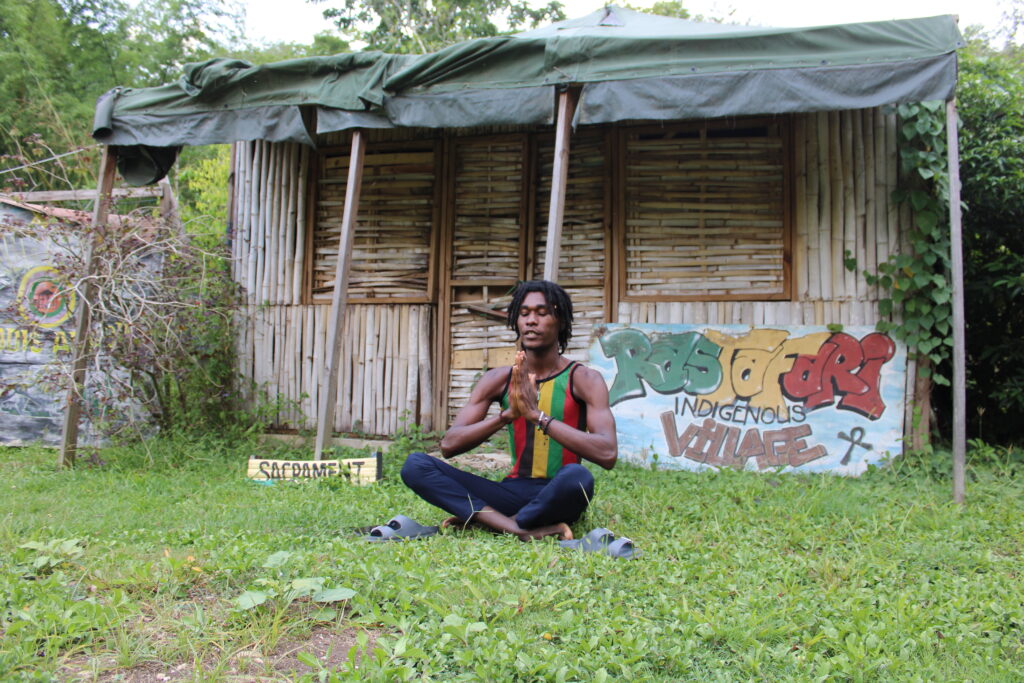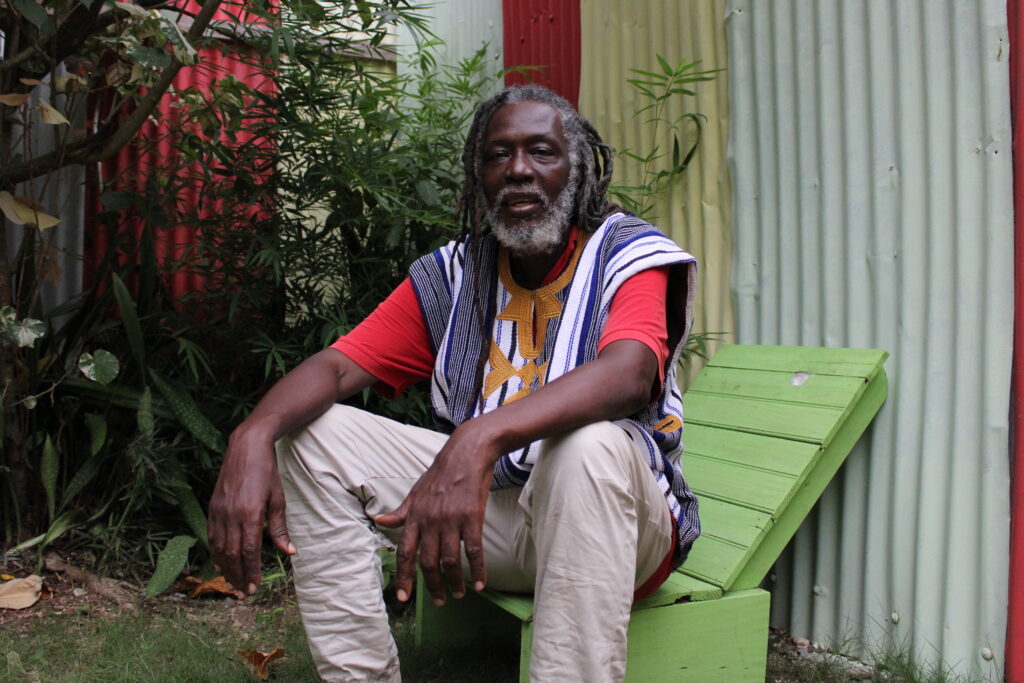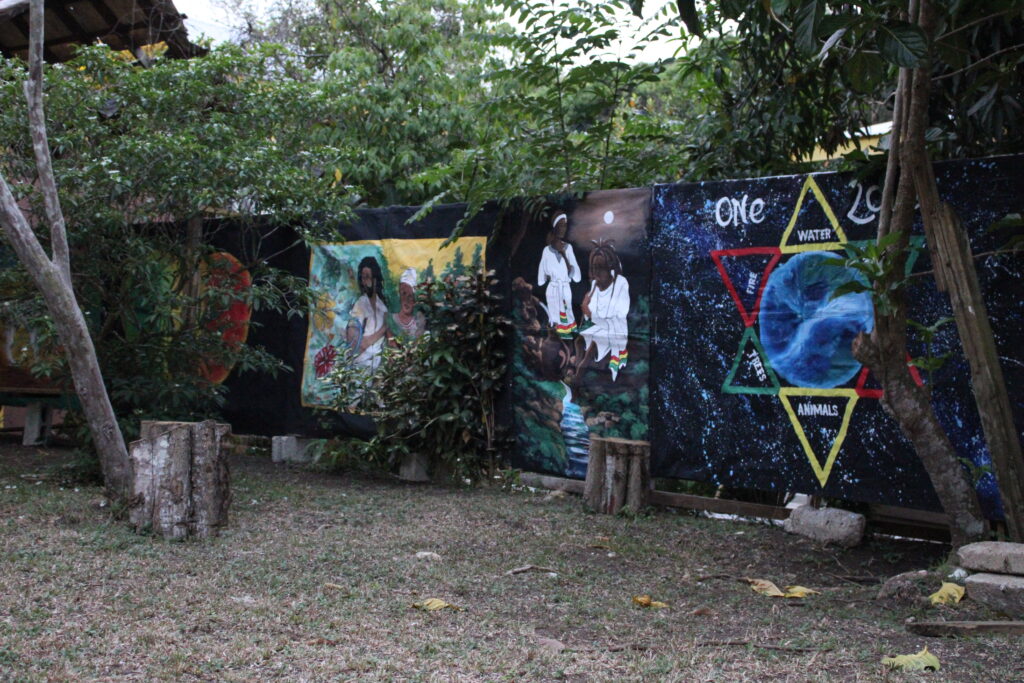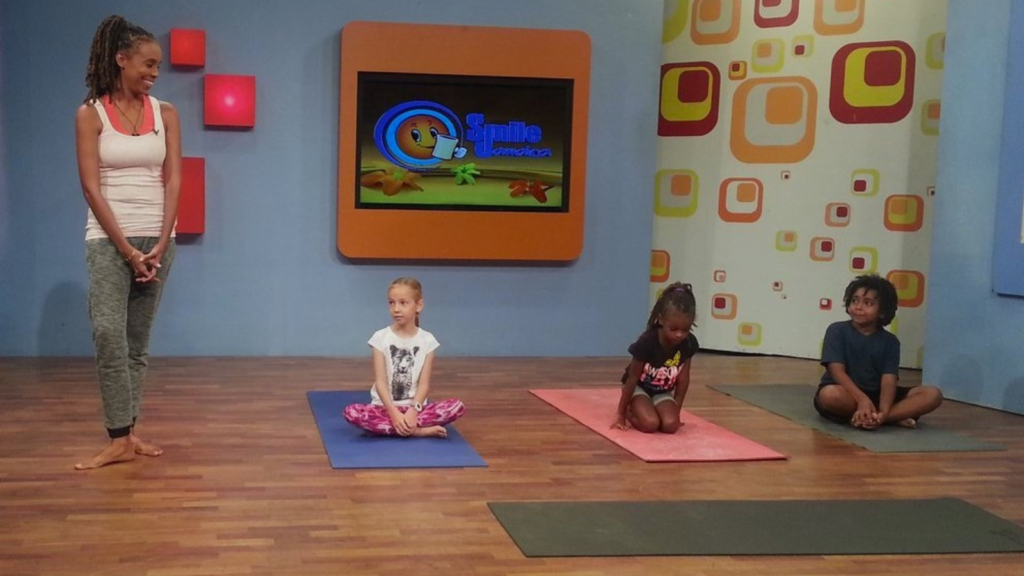In Jamaica, the effects of climate change are being felt across society, disrupting traditional farming, cultural practices, and taking a psychological toll on vulnerable communities. For Indigenous groups, the instability caused by these environmental shifts threatens not only their lands and livelihoods but also their customs and mental health.
Historically, Jamaica’s Tainos were once nomadic, relocating to avoid natural disasters. They lived in close harmony with the land, using environmental cues to predict weather changes and sustain their way of life. However, colonisation, forced assimilation, and modernisation stripped them of this knowledge, leaving them more vulnerable to today’s climate challenges. Now, as extreme weather patterns intensify, there is an urgent need for community-led mental health initiatives, expert guidance, and traditional wisdom to alleviate the growing climate anxiety.

Indigenous Leadership: Rooting Resilience in Ceremony
For many Indigenous Jamaicans, cultural practices serve as a form of emotional resilience. Olivia Wilmot — an Ancient Egyptian yoga instructor, singer-songwriter, and co-founder of the Jamnesia Family Festival — views ancestral traditions as key to mental well-being.

“Jamaica is heavily dependent on its natural environment for its culture and economy, and this deepens the emotional response people may feel to climate threats,” she shared. Presence, positive activity, and good action in nature is always going to be good for our mental health.”
Ronalda Pairman, Kasike-iani (Chieftainess) of the Yamaye Guani Taino Peoples, reinforces this view, explaining that Indigenous communities have always adapted to climate change. For her, the key to managing climate anxiety lies in reconnecting with the land. She describes daily mindfulness practices, such as greeting the sun and honouring the four cardinal directions, as grounding techniques.
She also shares ancestral knowledge as an early warning system:
“When I was younger, I always heard that if you want to know when a great amount of water, like a rain, storm or flood, is coming, you look at the ants… If you see a whole heap (many) of mad ants running up and down, try to get inside your house (running into). Also, if you see mango trees bear too much [fruit], it means a storm [is] coming because the place is too hot. The Indigenous Peoples who live along the coast in St Elizabeth can also tell you that the sea changes, so when you see these things, even without a weather map, you know you need to prepare.”

This traditional wisdom not only provides practical disaster preparedness but also helps reduce anxiety by reinforcing a sense of control and foresight.
“Whatever it is that we have to do, ceremonies, rituals, food preparation, food preservation, reaping herbs, [or] the farming practices [that] now have to change… It assuages the anxiety, and families can come together even more, through this act of preparation.”

Pairman stressed the importance of passing down these practices to younger generations, particularly as modernisation erodes cultural connections.
“Jamaica has lost [its traditions] due to constant modernisation and colonisation. Many people feel disconnected from their roots and the natural world. Traditional Taino practices have helped us reestablish this connection to improve mental health and well-being.”
Climate Change, an Economic and Emotional Burden
Beyond mental distress, climate change is also threatening cultural sites and economic stability. Carlton Bell, a young farmer and agriculture consultant from Scott’s Hall Maroon Town in St Mary, has witnessed firsthand how shifting weather patterns disrupt both agriculture and cultural engagement.

“The disruptions to cultural practices, drumming, dancing or clearing of ancestral grounds due to prolonged rainfall, lead to a big sense of disconnection from the culture… The Bolden Waterfall that is located in Maroon Town, due to long periods of drought, we now only see it when it rain. That’s a big piece of our history that we’ve lost due to climate change. We lost some of our [Maroon] trails because of landslides; these we could easily monetise, but they are no longer with us.”
The 19-year-old recipient of the 2024 Prime Minister’s Youth Award for Excellence in Agriculture also notes that many young Scott’s Hall farmers, frustrated by erratic weather, are abandoning agriculture for corporate jobs, leading to further cultural loss.
“A lot [of our farmers] are frustrated, confused and discouraged… Many get ‘regular jobs’ instead of ‘wasting their time’ on something that’s not going to profit them,” he explained.

The Psychological Toll: Addressing Climate Anxiety
For Edward ‘First Man’ Wray, a founding elder of the Rastafari Indigenous Village, mental health struggles among Indigenous Jamaicans stem largely from cultural disconnection.
“You’ll find these things [mental health challenges] in people who are following the [ways of] the colonial masters. People who are born with things like drumming or farming as a part of their lineage, [who] are now being asked to adapt to a 9-5. When they can’t cope with this unnatural reality, they feel like something is wrong with them mentally.”
He argues that this loss of identity worsens depression, anxiety, and even suicidal ideation, as many feel they do not belong in either modern society or their Indigenous world.
Meanwhile, for many Jamaicans, the environment is deeply tied to identity, so the loss of cultural and natural landmarks adds another layer of grief. Jhanille A. Brooks, licensed counselling psychologist and founder of the Jamaica Mental Health Advocacy Network, suggests that proactive coping strategies can help.
“Practices like mindfulness, journaling, and therapy can help process feelings of fear and uncertainty… Engage in small, meaningful environmental actions like conservation efforts or community clean-ups to foster a sense of agency,” she advised.
Brooks, author of Metamorphosis, which focuses on building mental resilience, also advocates for mental health education in disaster preparedness plans to provide support after environmental crises.
Climate Resilience: A Holistic Approach
For ‘First Man’, Indigenous-led mental health initiatives are crucial. He emphasises that solutions must come from within the community, rather than being imposed externally.
“To be able to have [our] own introspection of where [we would] want to go, and for those to be valued… Community mental health must exist on many layers. As long as we can get those layers of recognition on the way, then, at least the younger people will start seeing value [in culture and environment] and we’ll be able to do that mental repair, based on that value appropriation,” he explained.
Despite the challenges, Jamaica’s climate crisis presents an opportunity to reconnect with ancestral wisdom, strengthen community bonds, and build resilience. The fusion of Indigenous knowledge, sustainable farming, and community-led mental health strategies offers a way forward, one that not only mitigates the impact of climate change but also restores cultural identity and well-being. By integrating cultural traditions with modern mental health approaches, Jamaica can ensure a sustainable and emotionally balanced future.
—
This story was originally published by Jamaica Observer, with the support of the Caribbean Climate Justice Journalism Fellowship, a joint venture between Climate Tracker Caribbean and Open Society Foundations.